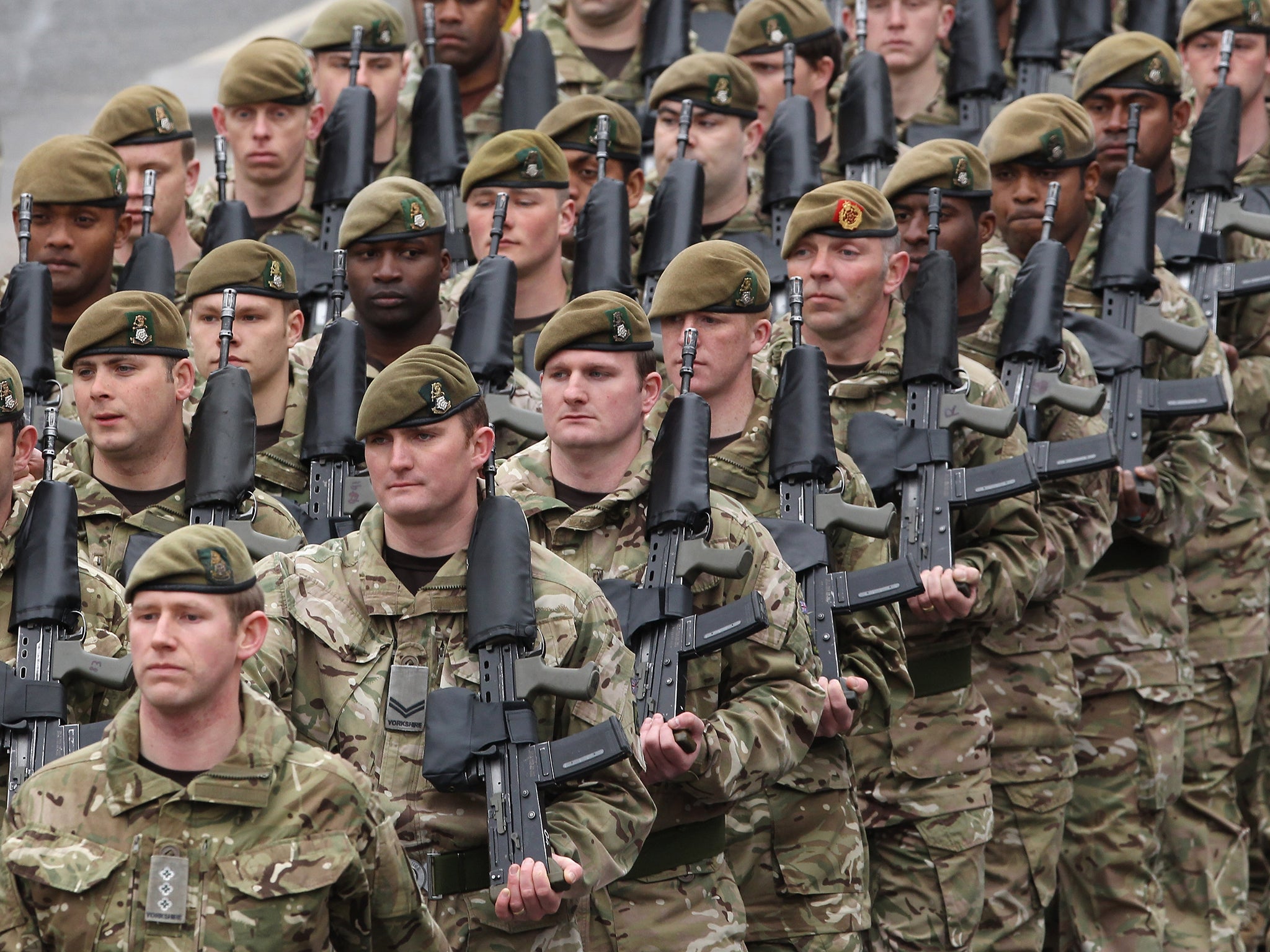Armed forces must have pay rise to entice new recruits, defence minister says
Tobias Ellwood says potential recruits may be deterred by eight-year cap

Members of the armed forces must be given a pay rise to protect recruitment, the defence minister has said.
Tobias Ellwood said an increase for the UK’s 137,000 full-time service personnel, costing an estimated £200m a year, could be funded by raising defence spending above 2.5 per cent of GDP.
The figure currently stands at 2.14 per cent and the Ministry of Defence (MoD) is already facing a shortage of up to £21bn for its equipment budget alone over the next decade.
“Nobody joins the armed forces for the money as such, but we must avoid pay being an issue as to why they would be deterred from it,” Mr Ellwood, a former army captain, told The Times.
“There needs to be a pay rise. We have still got to conclude the defence modernisation programme, but you would need to move north of 2.5 per cent to make any of this work, if you want to retain the same defence posture given the dangers, the complexities of the world that we face.”
A study commissioned by Downing Street last year warned that all three branches of the military were “running to a standstill” as they struggle to recruit enough personnel to replace those leaving.
The government’s decision to outsource army recruitment to contracting giant Capita has drawn fire, with a wider crisis blamed on a “flawed austerity drive” launched in 2012.
The armed forces’ pay review body has already submitted its 2018 recommendations to the government, which are said to include a 3 per cent pay increase.
A MoD spokesperson said the independent body’s findings were still being considered and an announcement would be made in due course.
Military pay rises have been frozen or capped at 1 per cent a year since 2010 and while the government lifted the public sector pay cap in September, an announcement on the armed forces was delayed.
Mr Ellwood has previously suggested the armed forces should receive funding on a par with the NHS, although the latest official statistics show the UK spent 9.8 per cent of GDP on healthcare in 2016.
Gavin Williamson, the defence secretary, has warned that Britain must continue to invest in its conventional armed forces if it is to deter aggressors such as a resurgent Russia.
“It’s sometimes difficult to explain to people that actually investing in our armed forces is all about making sure that things do not happen,” he said at a speech in London.
“If we do not have that conventional deterrence, and the ability to deter from conventional forces, then what we’ll find ourselves in is a place that none of us wish to be in, and having to turn to the greatest deterrence of them all.”
The MoD is one of numerous departments competing for more money from the Treasury, with Philip Hammond expected to present his next budget in November at the earliest.
Sajid Javid, the new home secretary, has also vowed to make his case for increased police funding in the upcoming government spending review as forces struggle with falling officer numbers and shortages of detectives while battling rising crime and the terror threat.
MPs have recently accused the MoD of “a lack of rigour in its financial affairs” over an ongoing modernisation programme and wider strategy.
The Public Accounts Committee said it was “highly sceptical” that the modernising defence programme would solve affordability issues and secure Britain’s capabilities against cyber, chemical, biological, radiological and nuclear attacks.
The committee accused the MoD of relying on “ever increasing and optimistic savings targets” and controversial efficiency programmes, with the department so far saving £7.9bn out of a £16bn target to be reached over the next nine years.
The MoD has also been lambasted for costing the taxpayer billions of pounds by selling off tens of thousands of military families’ homes to a private company and then leasing them back.
Subscribe to Independent Premium to bookmark this article
Want to bookmark your favourite articles and stories to read or reference later? Start your Independent Premium subscription today.

Join our commenting forum
Join thought-provoking conversations, follow other Independent readers and see their replies